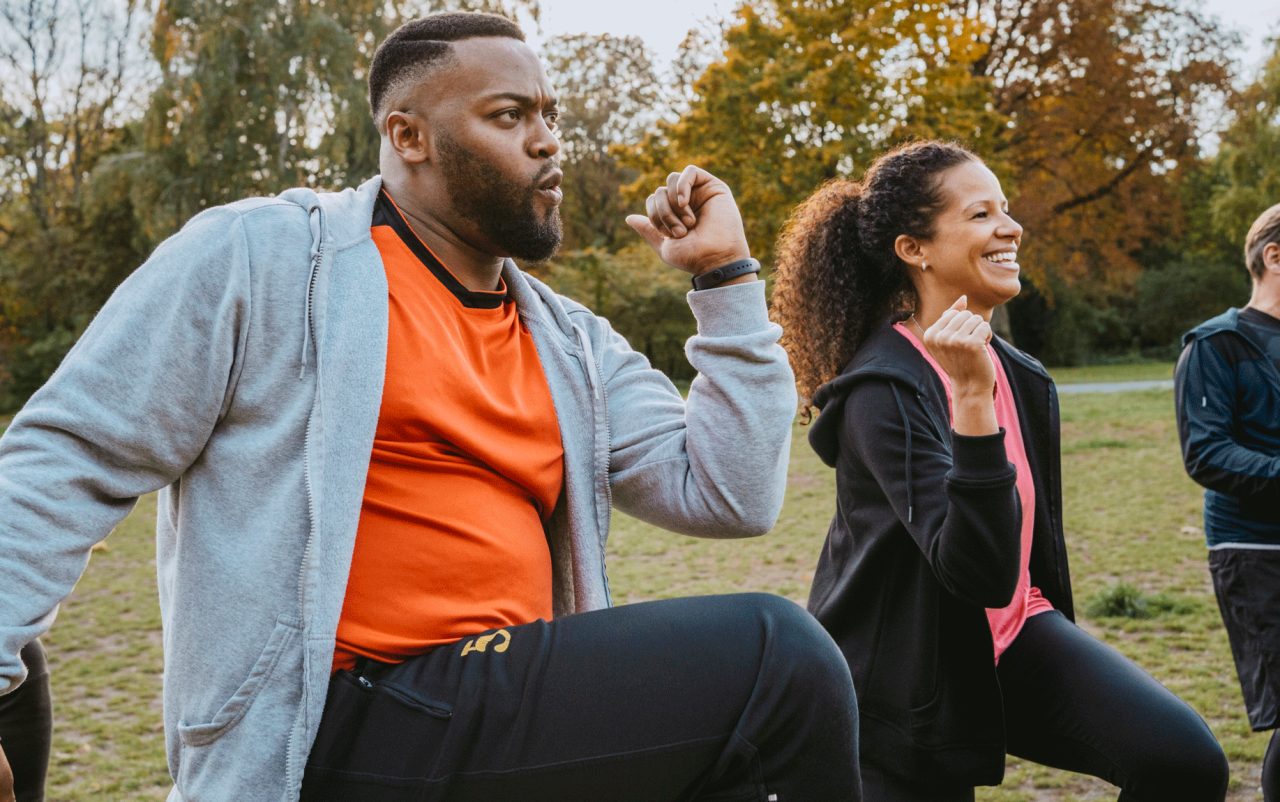Could Exercise Help You Quit Alcohol, Drugs, and Tobacco?

Fitness is a promising way to ease people off addiction, but more research is needed to confirm how it works. Here's what you should know about exercise and addiction.
Substance-use disorder has become such a pressing health problem that The White House has called it an epidemic. More than 40 million Americans have a substance use disorder, and four out of five aren’t getting the help they need.
Finding effective treatments has become increasingly urgent.
YOU MIGHT ALSO LIKE: U.S. Drug Overdoses Spiked During 2020
A study published in the journal PLoS One offers some hope for those struggling with addiction. The authors found that jogging, cycling, or doing other aerobic and strength-training activities just a few times a week has the potential to help people wean themselves off opioids, cocaine, alcohol, and other substances.
Exercise could be an inexpensive, easy, and potentially effective way to address America’s addiction crisis.
Why we need new treatments for addiction
The traditional treatment for substance abuse involves going through a detoxification process to clear drugs or alcohol from the body. That’s usually followed by an inpatient or outpatient rehabilitation program or a 12-step program or both. Since such programs can be hard to stick with and have high relapse rates, the search has been on for other ways to treat substance use disorder.
Exercise has already shown promise for treating mental health conditions such as anxiety and schizophrenia. In recent years, researchers have wondered if fitness can also be an effective way to wean people off drugs, alcohol, and tobacco.
Exercise as substance use treatment
In the PLoS One study, researchers from the University of Quebec and the University of Montreal in Canada looked at the results of 43 studies on exercise for substance use disorder. Together, the studies included more than 3,100 participants.
The most popular exercise regimen evaluated in the studies was an hour of moderate-intensity activities, such as jogging, cycling, or resistance training three times a week for around three months.
People who completed a workout program not only were stronger and more aerobically fit afterward but also had less anxiety and depression, and fewer cravings. In 75 percent of the studies, people were able to cut down on their substance use after going through the exercise program.
“Results suggest that there is promising evidence indicating that [physical activity] can be beneficial for these patients,” the authors write.
How might exercise help people get off drugs and other addictive substances? The authors of another review of exercise as a potential treatment for substance use offered a few possible reasons:
- Exercise adds more structure to the day and acts as a distraction from drugs, alcohol, and tobacco.
- Working out reduces depression and anxiety, feelings that increase the risk of substance abuse.
- Exercise improves self-esteem and well-being, which protect against substance use.
- Physical activity stimulates the same reward pathways in your brain as drug use.
What we know — and what we still need to learn
The study authors noted a few limitations to their research. For one thing, most of the studies they reviewed didn’t mention how much exercise the participants completed.
Many of the studies excluded people with mental illnesses like bipolar disorder and schizophrenia. That would have been an important consideration, given that nearly 40 percent of people with substance use disorder also have a mental illness.
What you can do
Exercise isn’t a proven treatment for substance use disorder. But its other health benefits (weight loss, bone strengthening, improved mood, and better cardiovascular health) make it worth trying, along with medication and other more traditional therapeutic methods. Talk to your doctor or rehab treatment team about ways to incorporate physical activity into your recovery plan.
Aim to get an hour of exercise, three days a week, the amount of time studies have found most effective for treating substance use. Put your workouts on a calendar to hold yourself accountable.
If you’re new to exercise, start slowly and follow your doctor’s advice. Choose a workout you like, so you’ll stick with the program. Consider working out with other people who are in recovery to motivate each other.
Updated:
November 29, 2023
Reviewed By:
Janet O'Dell, RN